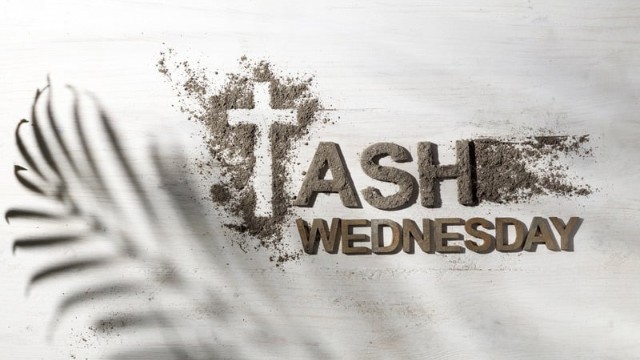Welcome to a comprehensive guide on Ash Wednesday 2024. As we usher in the Easter season, Ash Wednesday marks the beginning of Lent, a period of reflection, repentance, and spiritual renewal for Christians worldwide. In this article, we delve into the significance of Ash Wednesday, its traditions, and practical considerations for observance. Whether you’re familiar with this holy day or new to its customs, join us as we explore everything you need to know about Ash Wednesday and its celebration in 2024.
Understanding Ash Wednesday
What is Ash Wednesday?
Originating from ancient Christian practices, Ash Wednesday derives its name from the tradition of marking believers’ foreheads with ashes in the shape of a cross. These ashes symbolize penance, humility, and mortality. The imposition of ashes is accompanied by the words, “Remember that you are dust, and to dust you shall return,” serving as a reminder of human frailty and the need for repentance.
Is Ash Wednesday a Catholic Holy Day of Obligation in 2024?
Ash Wednesday is widely observed among Catholics, but its significance extends beyond Catholicism to various Christian denominations. While it isn’t designated a Solemn Feast in the Catholic Church, it holds considerable significance in the liturgical chronicle, signaling the onset of a phase of fasting, supplication, and introspection.
Do I need to be Catholic to receive ashes?
No, receiving ashes on Ash Wednesday is not restricted to Catholics. Many Protestant denominations and even some non-denominational Christian churches also observe this tradition. All are welcome to participate in the Ash Wednesday service and receive the imposition of ashes as a symbol of repentance and renewal.
Understanding these foundational aspects of Ash Wednesday sets the stage for a deeper exploration of its meaning and significance in the lives of believers. As we continue our journey, we’ll delve further into the practices and observances associated with Ash Wednesday in 2024.
Ash Wednesday in 2024
In 2024, Ash Wednesday falls on February 14th, coinciding with Valentine’s Day. This convergence of religious observance and secular celebration prompts questions about the significance of Ash Wednesday and its relationship to other events in the Christian calendar.
When is Ash Wednesday?
Ash Wednesday occurs 46 days before Easter Sunday, marking the start of the Lenten season. The date varies each year, determined by the ecclesiastical calendar based on the lunar cycle and the date of Easter.
Is Valentine’s Day and Ash Wednesday the same day?
Yes, Ash Wednesday and Valentine’s Day coincide in 2024, presenting an interesting juxtaposition of themes—love and repentance. While Valentine’s Day celebrates romantic love, Ash Wednesday invites believers to reflect on the sacrificial love demonstrated by Jesus Christ and to embark on a journey of spiritual introspection.
When is Lent?
Lent, the period of fasting, prayer, and penance leading up to Easter, begins on Ash Wednesday and lasts for 40 days, excluding Sundays. It is a time of spiritual preparation to commemorate the passion, death, and resurrection of Jesus Christ.
When is Easter 2024?
Easter Sunday, the culmination of the Lenten season and the most significant event in the Christian calendar, will be celebrated on April 7th, 2024. This date marks the resurrection of Jesus Christ, affirming the hope and promise of redemption for believers.
As we navigate the labyrinthine paths of faith and culture in the milieu of Ash Wednesday 2024, comprehending the temporal and theological import of these occurrences enriches our appreciation for the spiritual odyssey that lies ahead. Join us as we scrutinize the traditions and observances associated with this sober reflection and delve deeper into its pertinence in contemporary society.
Observing Ash Wednesday
The observance of Ash Wednesday encompasses diverse rituals and practices that bear profound import for adherents. From receiving ashes to fasting, these traditions embody tangible manifestations of dedication and allegiance to spiritual rejuvenation.
Receiving Ashes on Ash Wednesday
The ritual of receiving ashes on Ash Wednesday is a solemn and symbolic act. The ashes, typically derived from the burning of palm branches from the previous year’s Palm Sunday, are imposed on the forehead in the shape of a cross. This gesture serves as a palpable symbol of penitence, modesty, and transience, reminding adherents of their reliance on the divine and the imperative for inner metamorphosis.
Symbolism and Significance
The imposition of ashes encapsulates several theological verities. Firstly, it represents repentance and contrition, acknowledging human sinfulness and the desire for forgiveness. Secondly, it signifies humility, as the ashes remind believers of their mortality and the fleeting nature of earthly life. Finally, the cross-shaped mark points to the sacrificial love of Jesus Christ and the hope of redemption through his death and resurrection.
Locations for Receiving Ashes
Ash Wednesday services are convened in churches globally, affording adherents the opportunity to partake in the imposition of ashes. Moreover, certain churches orchestrate open-air or drive-through ash allocation events to cater to individuals unable to attend conventional services.
Fasting on Ash Wednesday
Fasting is a time-honored practice observed by myriad Christians on Ash Wednesday. While specifics may diverge among denominations, fasting typically encompasses abstinence from meat and the partaking of modest, frugal repasts. The intent of fasting is to divert focus to spiritual matters, cultivate self-discipline, and draw closer to the divine through supplication and introspection.
Reasons for Fasting
Fasting on Ash Wednesday echoes Jesus’ 40-day fast in the wilderness and serves as a tangible expression of solidarity with his sacrifice. It is also a means of purifying the body and soul, detaching from worldly comforts, and preparing for the spiritual journey of Lent.
Requirements and Guidelines
Though fasting is encouraged, it isn’t compulsory for all Christians, and specifics may hinge on individual circumstances and denominational mores. Certain adherents may opt to fast from particular victuals or activities, while others may undertake more rigorous fasting regimens. The key is to approach fasting with a spirit of sincerity, humility, and reverence for the sacredness of the Lenten season.
As we engage in these practices of prayer, fasting, and repentance on Ash Wednesday, we are invited to deepen our relationship with God and embrace the transformative power of his grace. Through these rituals, we embark on a journey of spiritual renewal and growth, preparing our hearts to embrace the profound mystery of Easter.
Spiritual Practices and Reflection
Ash Wednesday proffers an occasion for adherents to engage in spiritual practices and reflection, intensifying their communion with the divine and their comprehension of the Lenten epoch. From prayers to acts of beneficence, these practices facilitate the cultivation of a spirit of devotion and renewal.
Ash Wednesday Prayers
Prayer is central to the observance of Ash Wednesday, providing believers with a means of communication with God and a pathway to spiritual renewal. Whether through scripted prayers or personal entreaties, prayer furnishes a means to express contrition, seek absolution, and draw nearer to the celestial realm.
Traditional Prayers
Many churches offer specific prayers for Ash Wednesday, including the Litany of Penitence, the Prayer of St. Ephrem, and the Collect for Ash Wednesday. These prayers often focus on themes of repentance, forgiveness, and the desire for spiritual transformation.
Personal Reflection
In tandem with structured prayers, Ash Wednesday occasions a period for personal contemplation and introspection. Adherents may seize this juncture to scrutinize their lives, acknowledge transgressions, and identify areas for personal advancement and amendment. Through tranquil rumination and meditation, individuals can open their hearts to the divine promptings of the Holy Spirit and synchronize their lives more intimately with divine intentions.
How Else Can I Observe Ash Wednesday?
Beyond the reception of ashes and fasting, myriad avenues exist for observing Ash Wednesday and embracing the Lenten epoch.
Acts of Charity
Ash Wednesday presents an opportunity to engage in acts of charity and service to others. Whether through volunteering, donating to charitable causes, or offering support to those in need, believers can embody the spirit of love and compassion exemplified by Jesus Christ.
Spiritual Reading and Study
Countless adherents utilize the Lenten epoch as an occasion for spiritual edification and enrichment through study and contemplation. This may entail perusal of scripture, devotional literature, or theological treatises that deepen comprehension of faith and foster a closer rapport with the divine.
Attending Worship Services
Participation in worship services throughout the Lenten epoch affords adherents opportunities for communal supplication, fellowship, and introspection. Churches often offer special services and liturgies during Lent, providing space for collective worship and spiritual renewal.
As believers engage in these spiritual practices and reflections on Ash Wednesday, they are invited to journey deeper into the heart of God and embrace the transformative power of the Lenten season. Through prayer, self-examination, and acts of devotion, adherents prime their hearts to fully experience the felicity and optimism of Easter.
Historical and Cultural Context
To grasp fully the significance of Ash Wednesday, comprehension of its historical and cultural milieu proves imperative. From its inception in antiquated Christian traditions to its contemporary resonance, Ash Wednesday has traversed centuries, molding the religious and cultural landscape of the Christian faith.
The History of Ash Wednesday
The antecedents of Ash Wednesday trace back to nascent Christian practices dating to the 4th century AD. The imposition of ashes as a symbol of contrition and modesty finds antecedents in ancient Jewish practices of lamentation and penance. Over time, the ritual of Ash Wednesday became enshrined in the liturgical calendar of the Western Church, garnering widespread observance among Catholics and subsequently Protestant denominations.
Why is Ash Wednesday important?
Ash Wednesday holds significant theological and spiritual importance for Christians worldwide. It marks the beginning of the Lenten season, a period of preparation and reflection leading up to Easter Sunday. Through practices such as fasting, prayer, and repentance, believers are invited to engage in a journey of spiritual renewal, drawing closer to God and embracing the transformative power of Christ’s sacrifice.
Cultural Significance
Beyond its religious connotations, Ash Wednesday holds cultural significance in many societies. In regions predominantly Catholic, Ash Wednesday is commemorated as a public holiday, with churches conducting special services and rituals. The imposition of ashes serves as a visible testament to one’s faith and dedication to the Lenten epoch, often piquing curiosity and interest among those beyond the Christian fold.
Contemporary Relevance
In today’s fast-paced world, Ash Wednesday continues to hold relevance as a time for introspection and renewal. Despite shifting cultural attitudes towards religion, many individuals still participate in Ash Wednesday observances, whether out of religious conviction or a desire for spiritual connection. The universal themes of repentance, forgiveness, and redemption resonate across diverse cultures and faith traditions, making Ash Wednesday a time of universal significance and meaning.
By understanding the historical and cultural context of Ash Wednesday, believers can deepen their appreciation for this sacred observance and its enduring relevance in the modern world. As we continue to observe Ash Wednesday in 2024 and beyond, may we be inspired to embrace its rich traditions and spiritual practices, drawing closer to God and experiencing the transformative power of his grace.
Practical Considerations
As adherents prepare to observe Ash Wednesday in 2024, several practical considerations merit attention. From dietary constraints to personal reflection, these guidelines facilitate a meaningful and enriching experience of this sacred commemoration.
Can you eat meat on Ash Wednesday?
Traditionally, Ash Wednesday is a day of fasting and abstinence for Catholics and many other Christians. This means refraining from consuming meat and opting for simpler, meatless meals. However, specifics may vary based on individual circumstances and denominational mores. Some adherents may opt for complete abstinence from meat, while others may choose vegetarian or fish-based alternatives.
Make It Personal: Tips for personal reflection and engagement
In addition to observing traditional practices such as receiving ashes and fasting, Ash Wednesday provides an opportunity for personal reflection and spiritual engagement. Consider the following tips for making the most of this solemn observance:
- Set aside time for prayer and meditation, reflecting on the themes of repentance, forgiveness, and renewal.
- Engage in acts of charity and service, reaching out to those in need and embodying the spirit of love and compassion.
- Attend worship services and participate in communal prayer, fellowship, and reflection.
- Use scripture and devotional literature as a guide for spiritual growth and enrichment during the Lenten season.
- Consider incorporating fasting or other forms of self-denial into your observance of Ash Wednesday, focusing on spiritual discipline and self-examination.
Planning Ahead
To ensure a meaningful observance of Ash Wednesday, it’s helpful to plan ahead and make necessary arrangements. Consider the following practical considerations:
- Check the schedule of Ash Wednesday services at your local church or place of worship.
- Determine whether you will be observing any dietary restrictions or fasting practices and plan your meals accordingly.
- Consider ways to incorporate personal reflection and spiritual practices into your day, whether through prayer, scripture reading, or acts of service.
By keeping these practical considerations in mind, believers can approach Ash Wednesday with intentionality and reverence, fostering a deeper connection with God and experiencing the transformative power of the Lenten season. As we embark on this spiritual journey together, may we be guided by faith, humility, and a desire for spiritual renewal.
Conclusion
In conclusion, Ash Wednesday 2024 presents believers with a sacred opportunity for introspection, repentance, and spiritual renewal. Through the timeless rituals of receiving ashes, fasting, prayer, and acts of charity, individuals are invited to embark on a journey of faith, drawing closer to God and embracing the transformative power of his grace. As we navigate the complexities of modern life, the observance of Ash Wednesday serves as a poignant reminder of our shared humanity, our need for forgiveness, and our hope for redemption. May the lessons and traditions of Ash Wednesday resonate deeply within our hearts, guiding us on a path of spiritual growth and renewal throughout the Lenten season and beyond.










